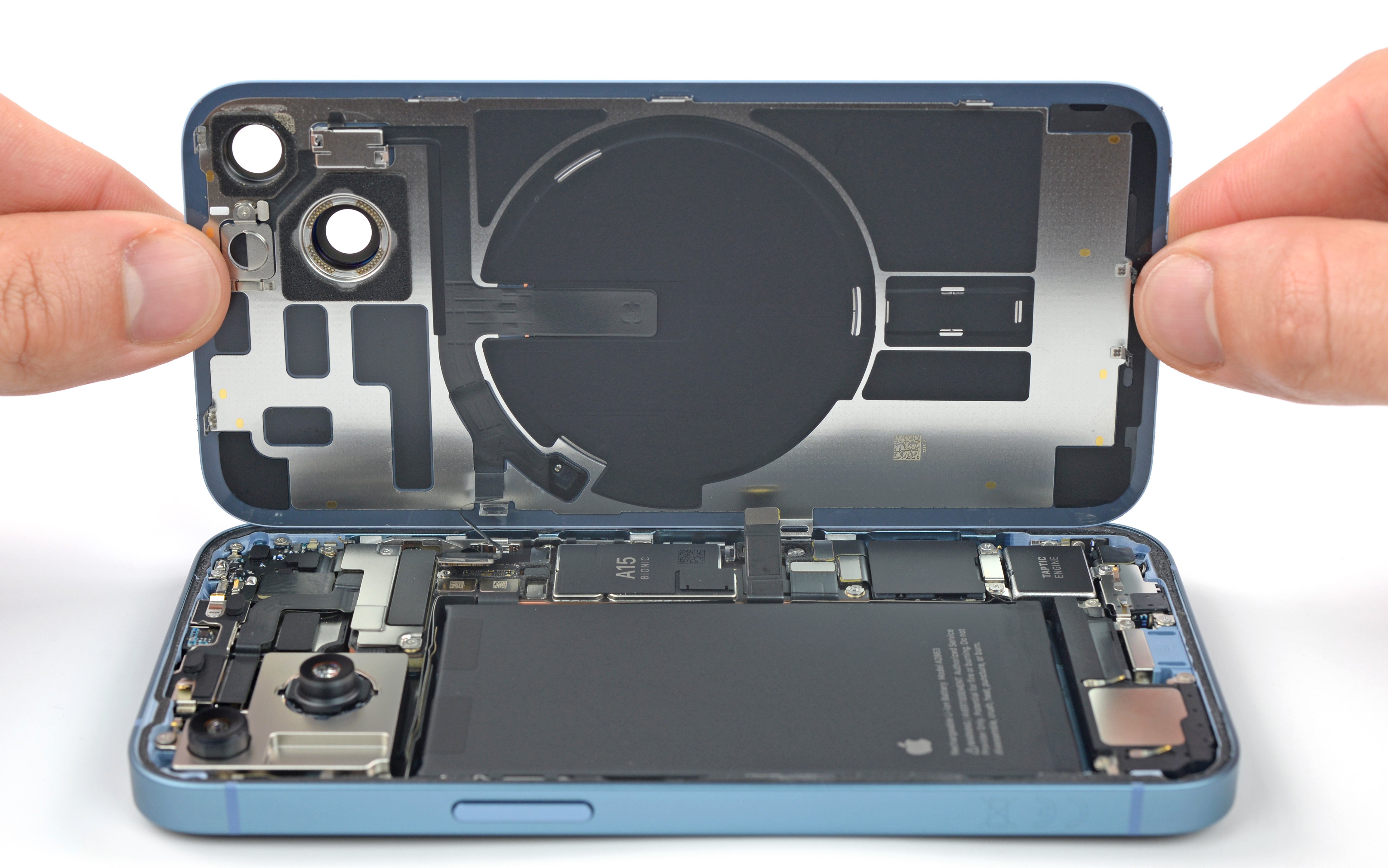I work in electronics manufacturing and I’m torn on this issue.
On the one hand, fuck Apple for requiring to go through so many hoops.
On the other hand, every device my company makes has an internal checksum and if one PCB is installed incorrectly, the main board throws a fit because the device checksum doesn’t match.
It sounds like Apple may do something similar for their products and it sort of makes sense: determined people try something crazy like take an older iPhone and install a newer Wireless module or replace Lightning with USB-C. Neither of those things were intended by Apple, and there’s a huge potential that it wouldn’t work.
With that said, it’s absolutely overkill for things like display or digitizer replacements, which are going to be the majority of repairs on iPhones.
Tl;Dr - fuck Apple, this is dumb, the users have the right to repair
I think signed hardware components are actually a good thing. The problem is that Apple makes it so that unapproved hardware doesn’t work at all. I think the device should warn the user, but allow them to override and continue at their own risk.
Of course, Apple isn’t going to allow that unless they’re forced to. Glances sideways at the EU.
Yeah, it would be a fantastic thing if it showed a permanent history of parts and their serials in the settings, as well as a date on which the change was noticed, so you have an idea of the history of the phone and what’s been replaced. And, of course, not locking you out of features.
With the healthy second-hand market for iPhones, that would be great. Let buyers decide how they feel about previous repairs, offer transparency.
The unhelpful move is requiring a connection to Apple’s servers to calibrate replacement parts.
Makes me wish Google hadn’t canned phonebloks. Can you imagine how much waste we could have cut down on if we decided to standardize every component like the usb-c port?
I think we would need something like a Framework.
Project Ara had no future if all modules need a case for protection AND the components.Phonbloks would never have worked. Phones are all different shapes and sizes, so you just run into tons of compatibility issues whenever you want to upgrade anything, as new components will be larger than the old ones. Technology just doesn’t progress in ways that nicely fits into form factors from five years ago, fingerprint reader, FaceID, multiple cameras, wireless charging, etc. None of that fit into a block model. Phones are also a weird market place where people give up headphones and replaceable batteries if it makes their phone 1mm thinner, so a big bulky modular device would really have much chance against the much sleeker competition.
Fairphone is a much better compromise, it’s modular and repairable, but in a way that is actually practical. Turning everything into LEGO blocks looks fun in concept images, but nobody would want to use that.
Moto Z is/was another more interesting approach, instead of making the phone itself modular, it has some contacts on the back to dock extension modules. So you get extensibility without really changing anything about the phone itself.
Sounds good, but how do you stop an unscrupulous repair shop from clearing the warning before the end user can see it?
If it is persistent but buried in settings, most people won’t notice.
Maybe the warning could require Apple sign-in to dismiss, but can be hidden at startup? Then make it an industry standard to present the phone when it is powered off.
EDIT: Yes, I know that this is still shitty for most customers.
Hello Customer, we need your iCloud sign in to authorize the new part
Yeah, unfortunately that would be up to the average person knowing better than to give out passwords.
I can understand why installing the wrong part should give a warning, but the IDs are unique to the part, not the model of part, so even identical parts are not interchangable.
There’s exactly two positives to this system:
1- theft risk/reward is crushed. It’s simply no longer feasible for stolen iPhones to be parted out if the valuable bits don’t simply work. Sure, dumb and non networked components like frames and glass can probably be salvaged, but when even batteries are involved in the handshake process, you lose out on the ability to sell anything of value.
2- positive supply-chain validation. Not important for the majority of people, but for those who require a little more security, they can be a little more sure that their device isn’t compromised from illegitimate parts. I imagine this to be a fringe benefit for executives and the like. I know at one point government officials had access to some “special” variants of iPhones which were more locked down, but specifics are difficult to come by.
For everybody else, this plain sucks. We move farther and farther into not even owning the physical things in our possession.
deleted by creator
I don’t know how old your Mac was, but I think system info does record battery details. If not a serial, it definitely reads the cycle count, so it may have been possible to cross reference that if you knew the cycle count previously, but of course, I don’t blame you for not making backups of all that information and cross referencing it, you should never need to do that in the first place.
That’s odd. That’s really dumb for those third-party technicians to take that, as (aside from the damage to their reputation and simply not being a good person), it would probably be a degraded battery anyway. Being constantly plugged in is very bad for a battery.
Sounds like that shop may have gone out of business for a reason.
I don’t get the surprise… Apple has ALWAYS been like this. They don’t want “normies” screwing around with “their” gear.
Heck, you needed a case cracker tool to open the OG Macintosh machines, they were specifically engineered to keep people out.
https://archive.org/details/mac_Mac_case_cracker_instructions_box_198x
True but the Mac G4, especially, was an absolute dream to work on. So I don’t agree they remained this way.
Hardware attestation is bad. It is clearly a tool to be used to lock down hardware, keep it OEM and proprietary, and decrease lost revenues due to user repairs and used parts. I believe everyone should be able to open up their own hardware and repair it themselves, and use whatever parts they want.
Apple’s excuse is that it is to prevent stolen devices from being used as a source of parts for repairs. What is surprising though, is that many people parrot that line. They are either astroturfing or are brainwashed enough to believe it.
Edit: I found examples of this further down the thread. SMH!
All of this stuff makes me sad. As a long(ish)-time Apple user, it’s been sad to see them go full throttle into hyper-capital mode. They’re literally the wealthiest company on the planet because they’ve spent the past twenty years figuring out how to nickel and dime their customers. Hell, even when I bought my first MacBook back in '07, the guy in the Apple Store suggested getting the RAM upgrade elsewhere because Apple prices were ridiculous even then. Everyone knows they didn’t go with soldered RAM and storage for the performance gains…
But they make incredible hardware, so I tolerate all that shit, making me complicit in the fuckery.
But they make incredible hardware,
But do they though? I get it that those are mostly nicely designed, sleek devices with great performance but then you have fuckups like the terrible keyboard and the touch bar (by fuckup I mean that people criticized the idea from the start and were proven right by Apple dropping it after few models). For me the hardware is a hit and miss, some things are nice, some features are terrible. And with Apple you can’t choose and pick like with PC. When they decide to try silly things like the touch bar you are stuck with them for years. You either don’t upgrade or have to get a product with a feature you don’t like.
Yes, they really do. There were a few years of fuckups and questionable decisions, but by and large the devices they make are absolutely solid.
I have a 2011 MacBook Pro at home that’s running Monterey via Opencore as well as if it was still supported. Until recently I was using a 2015 MBP that was absolutely faultless. I now have an M2 Air that may have some issues down the line that haven’t come to light yet, but it seems unlikely. I have two Mac minis at work, a 2011 and a 2014 that are still absolutely capable for the level of work I ask of them. I’m typing this on one of them.
In terms of iPhones/iPads; I’ve had 7 iPhones and 5 iPads over the years, and the only hardware problems I’ve experienced with them have been of my own doing (broken screens, water damage, etc…).
So yeah, the 2016-2019 MacBooks had shitty keyboards and questionable I/O decisions, but otherwise the hardware was absolutely top tier.
And with Apple you can’t choose and pick like with PC. When they decide to try silly things like the touch bar you are stuck with them for years.
This is kind of a weird argument. You can’t choose which keyboard you get with any laptop.
This is kind of a weird argument. You can’t choose which keyboard you get with any laptop.
But with PC I can just choose a different brand. It’s super easy to switch.
I also have some really old Dell laptop and I used many Lenovo laptops that worked perfectly after 5-10 years. I agree that Apple’s design (like visually) is on another level but when it comes to how long they last compared to other professional laptops I would say it’s normal. The repairability is definitely not great. And for me it’s really frustrating that you just have to blindly accept all Apple’s ‘brave’ design decisions like dropping ports. I’ve seen Apple users running around the office with dongles since forever. I’m not saying the design is bad or the laptops are poor quality. I’m just saying IMHO it’s not all that better than other professional laptops. Some things are nice (weight, screen bezel, performance), other things are bad (repairability, port selection, keyboard).
It’s a different story with phones. Most Android makers suck when it comes to long term support.
Apple products are generally well-designed, but in addition to the occasional genuine screw-up, which they just handle in spectacularly arrogant ways, Apple’s engineers are absolutely no strangers to planned obsolescence.
Personally I’ve only witnessed their habit of using capacitors rated 85°C next to the 90+°C CPU instead of ones rated 105°C and costing a fraction of a cent more.\ Guess which small part fails after a few years and makes a logic board replacement necessary (or 30min with a toolkit and SMD soldering station if you know what the problem is). It’s difficult to believe that this is an honest mistake.
The Lightning connector has a design flaw that wears off the contact surfaces way faster than it should.
There are many other stories in self-repair forums that I can’t personally vouch for, but at least to me they look credible enough.IIRC Louis Rossmann has done a YouTube video on it, which I can’t find at the moment as the plane wi-fi blocks streaming services.
FYI, the Touchbar isn’t dead: https://www.pcmag.com/news/wait-theres-still-a-touch-bar-on-the-new-macbook-pro
I have no love for Apple’s hardware (primarily price related*), but since I am completely dependent on Adobe for my work, my OS options are MacOS and Windows. I love MacOS and passionately hate Windows 🙄
My solution was a Hackintosh; chose my own hardware (within compatibility restraints) and built my own computer. The price is miles from what I would have to pay Apple. My system cost roughly $3K (with two 4K screens), compared to the (roughly) equivalent, non-upgradeable options from Apple that start around $5K without screens.
The caveat is that sometimes I need to upgrade hardware to make sure it’s compatible with the latest (ish) MacOS versions (because software like Photoshop requires it), and it is a difficult process. Recently had to switch out my graphics card because I was stuck on High Sierra (old card was Nvidia, no support beyond HS), and it took me the better part of a week to get everything working.
Now it works, I’m on Monterey, and everything is chugging along perfectly. For now. Not sure what the future of the Hackintosh will be, but most likely there’s a dead end out there somewhere (nearby) as Apple fazes out Intel support.
Still worth it, but I’m dreading the day I have to give up and either pay Apple for hardware, or switch to [shudders] Windows.
Or maybe Adobe will start supporting Linux! 🤣
* I think I might hate iOS even more than Windows, though.
- I think I might hate iOS even more than Windows, though.
This is why iPads frustrate me so much these days. The hardware is more than capable of running a decently powerful OS, but Apple are insistent on crippling them with a big version of iOS. iOS is fine on an iPhone where the limited screen size means I have no particular desire to do anything too complicated, but the same restrictions on an iPad feel like Apple don’t really know how to reconcile what the device can do with not wanting to pull customers away from Macs. I was unexpectedly gifted a 6th gen mini last week which is in front of me as I type and which I’m not entirely sure what to do with.
They make ok hardware but it’s not spectacular or anything. The new chips that they put in all of the computers are very very good, but it’s not unique you don’t have to get Apple products to get that kind of performance and you certainly don’t have to pay their Apple prices.
iFixit knocks it out of the park, again. Take a moment to appreciate this mob !
Good job. With all Apple has done in the past, this seems like the bare minimum











